2023-05-11
The "mainlanders" who love to eat Cantonese food are originally in Shanghai! No Cantonese pigeon ever left Modu alive?
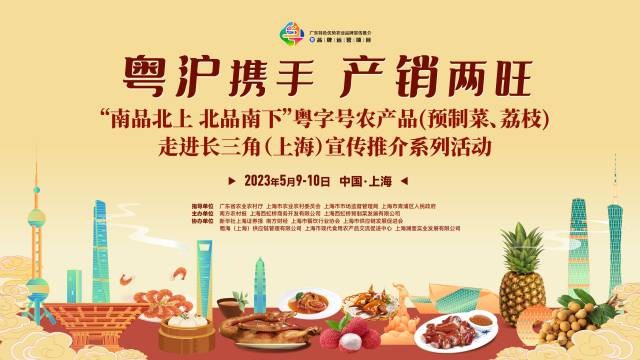
"If you have to pick out anyone from other provinces who loves Cantonese food, it must be Shanghainese." In the past "South products to the North, North products to the south" Guangdong brand agricultural products (prepared dishes, litchi) into the Yangtze River Delta (Shanghai) promotion series activities, exhibitors from Guangdong shared this discovery with friends.
As both maritime cities, Guangdong and Shanghai have long had close exchanges of food.

Shanghai: A hundred years of Cantonese food complex
In fact, as early as the Ming and Qing Dynasties, there was a saying among the people that "all the food in the world is available in East Guangdong, and all the food in East Guangdong may not be available in the world." Guangdong has a very inclusive attitude towards food, and the reputation of Cantonese cuisine is also growing outside the country.
In the period of the Republic of China, Cantonese cuisine was popular in Shanghai, and Xinya Cantonese Restaurant, located on Sichuan Road in Shanghai, once became a cultural landmark in Shanghai in the 1920s and 1930s, attracting a large number of literati to taste. According to a statistic in 1930, one third of the restaurants in Shanghai at that time were run by Cantonese people, mainly Cantonese food.
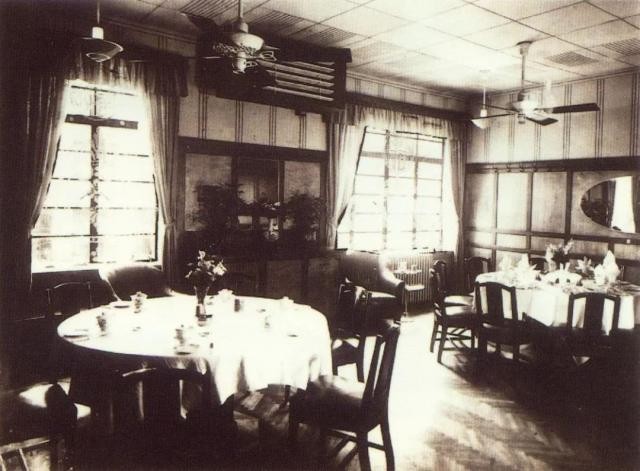
Xinya Cantonese Restaurant
From the Republic of China to now, Guangdong cuisine has been popular in Shanghai for hundreds of years, which also leads to a lot of Shanghai cuisine with Cantonese dishes. "Shanghai style" Shanghai cuisine is the selection of ingredients in the Jiangnan area, the introduction or creation of roast Suckling pig, seven-star gourd duck, Dara fried milk, crystal shrimp, shrimp, beef in oyster sauce, pork minced pot, four melon soup, chicken with scallion, sweet and sour pork, fried pork, smoked pomfret, roast squab and other Cantonese dishes, which are widely loved by the Shanghai people.
As an indispensable symbol of cuisine in Cantonese cuisine, roasted squab is naturally favored.
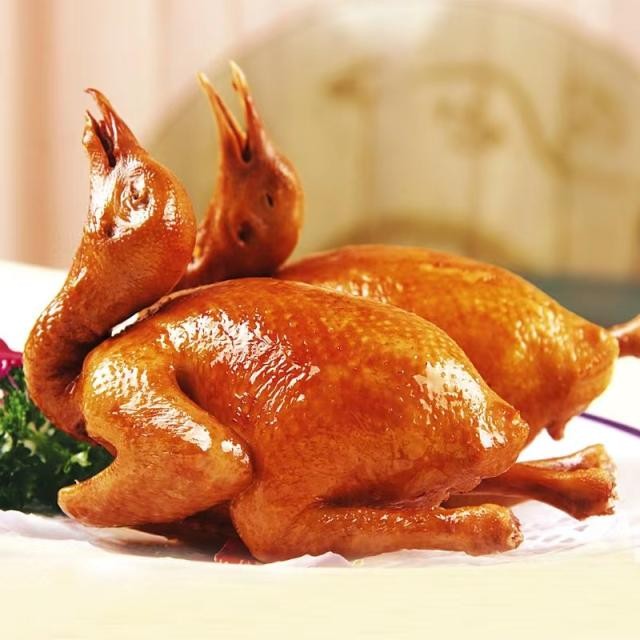
Statistics show that Shanghai consumes about 15 million pigeons every year, more than half of which need to be supplied from other places. In Guangdong, about 20 million pairs of breeding pigeons are stored every year, and 30-35 million pigeons can be put out every month, accounting for more than 60% of the national production. As a result, Guangdong can not only provide Shanghai with delicious food, but also provide Shanghai with a large number of raw pigeon materials.
Huizhou Shunxing Food Co., LTD. (hereinafter referred to as "Shunxing Food") is one of the suppliers. Ten years ago, about 30 percent of Shunxing's pigeons were sold to eastern China each month, recalls Tang Zhanyao, the company's general manager.
Shunxing Food's history of pigeon farming dates back to the 1990s. In the 1990s, the Tang brothers in Boluo County of Huizhou City opened breeding pigeon squab farms according to the market demand at that time, mainly wholesaling breeding pigeons and squabs to Dongguan and other places. "In 1990, several brothers of my father's generation started every morning, pushing a cart to deliver goods to various customers, and the wind and rain did not change." Tang Zhanyao recalled.
Step by step efforts, so that the cause of the Tang brothers gradually develop and grow. With the increase of breeding stock, the breeding pigeon needs to expand the market. After a lot of market research, the Tang brothers established Shunxing Food in 1992, extending from breeding to processing and sales, and developing from squab to poultry processing such as chickens, ducks and geese.
"From then on, our products began to enter the Hong Kong market and gradually gained a foothold." According to founder Tang Jiusheng recalled that in 1994, about 6,000 young pigeons were processed out of Hong Kong every month. By 1998, the monthly sales of young pigeons had reached 310,000. After several years of development, Tang Shunxing's squab products accounted for more than 70% of the Hong Kong squab market share, ranking first in the Hong Kong squab market share.
"In 1998, we shipped the finished products to Huangpu Terminal in Guangzhou and delivered them to Hong Kong by sea." Tang Jiusheng said. At that time, general cargo ships did not have refrigeration equipment, and mainly used ice to keep fresh, which was a great risk. To this end, with the help of government departments, the company applied for refrigerated container trucks with Chinese and Hong Kong license plates. Since August 1999, the cargo has been loaded directly at the factory and delivered to Hong Kong by land route, greatly reducing transit time.
Before 2007, Shunxing Food's meat pigeon sales were mainly live poultry, sold to the wholesale market. However, because the meat pigeon product is single, the price is transparent, and the profit of live poultry sales is low, Shunxing Food decided to "change the way" to sell pigeons.

Premade pigeon: a more convenient source of Cantonese cuisine
"As a traditional food in Lingnan and Hong Kong, Hong Kong-style roast pork has a strong popular base and broad market prospects." Tang Zhanyao said. In 2007, the first Tang Shunhing Siu Wei chain opened in Tsuen Wan, Hong Kong. Today, it has opened more than 30 chain stores in the bustling areas of Hong Kong such as Kwai Chung, Yuen Long, Mong Kok, Sham Shui Po and Wan Chai, accumulating a high reputation and winning the reputation of Hong Kong consumers.
Based on this, Shunxing Food opened the prelude to the development of prepared dishes at an advanced speed.
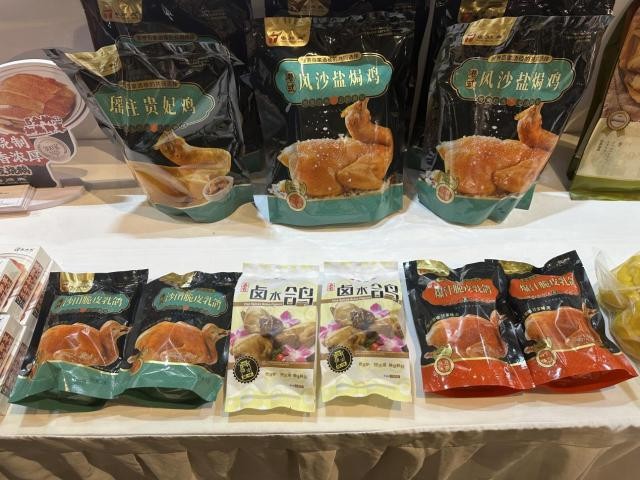
"We started developing prepared dishes earlier and paid more for school." Tang Zhanyao said, "Prefabricated dishes are not simple heating, how to retain the original flavor and taste through pre-treatment, packaging, cold chain and other links is a knowledge." "We've spent more than a decade trying to figure out how to make prepared dishes both safe and flavourful."
According to reports, Shunxing Food can sell 100,000-120,000 meat pigeon preprepared dishes every month in Shanghai, including Shatin crispy pigeon, marinated pigeon, crispy pigeon with fried sauce and other products, mainly through the B end sales, many in Shanghai Hong Kong style tea restaurants, Cantonese restaurants will sell Shunxing Food's pigeon dishes.
For the reason why squab products are so popular in Shanghai, Tang Zhanyao analyzed that the main reason is that Shanghai has a good consumer base. Shanghai and Guangdong food culture is very close, its food culture is also mature. "We have many years of sales and branding experience in Hong Kong, which is also very applicable to Shanghai."
In the "South products to the North, North products to the south" Guangdong brand agricultural products (prepared dishes, litchi) into the Yangtze River Delta (Shanghai) promotion series of activities, Shunxing Food also ushered in a lot of inquiries from Shanghai local buyers. Buyer Mr. Li said that Shunxing Food not only has B-end products, but also C-end products suitable for family consumption, and Shanghai has enough dietary foundation, I believe that pigeon products can be sold in Shanghai.
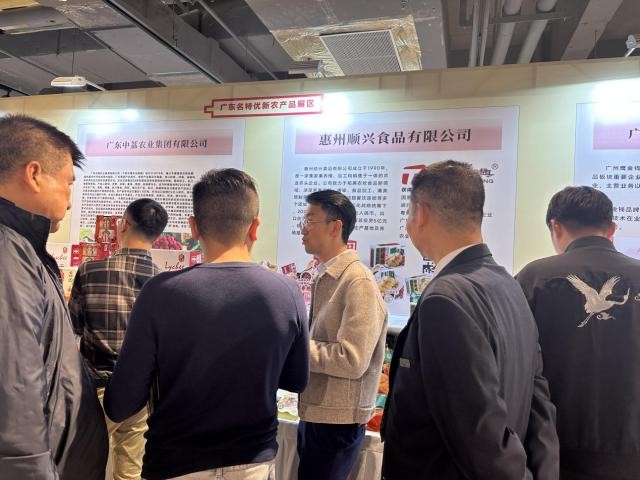
Tang Zhanyao said that as the largest market outside of southern China, Shunxing Food will also focus on the Shanghai market in the future, increase manpower deployment, and speed up the investment of squab prepared dishes in Shanghai.
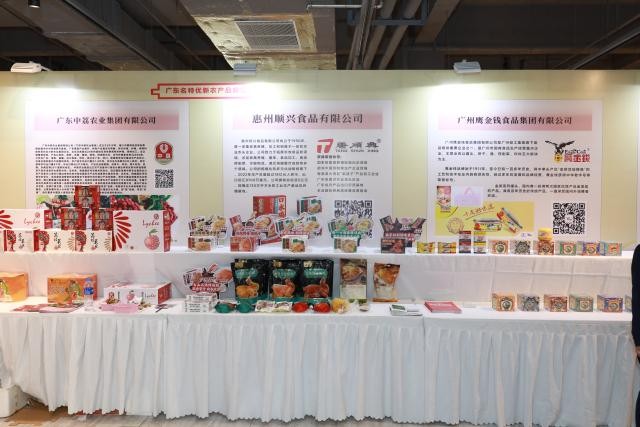
For the company's overall prepared dishes business, Tang Zhiyao said: "Hong Kong-style roast meat is a lot of overseas Chinese 'nostalgia', in the future, our focus on the development of cooked food products, will become our breakthrough in the Southeast Asian market." First, poultry deep processing to enhance the value of agricultural products, with livestock and poultry breeding as the core, to drive farmers to increase income. Second, as a traditional food, Hong Kong-style roast pork has a broad market in overseas Chinese circles, with high acceptance and large demand. Third, the export requirements of cooked food products are more relaxed than fresh products, and it is more convenient to open up overseas markets.

